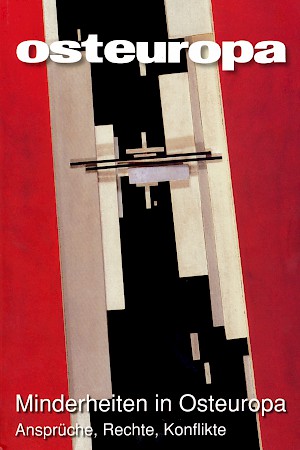Ambivalences of Minority Protection
International Organisations Put to the Test
Deutsche Fassung
Abstract
After the East-West conflict, international organisations expanded minority protection and in doing so established new, legal collective minority rights. The situation in the Republic of Macedonia, Serbia/Kosovo, Belgium, and France shows, however, that neither the OSCE High Commissioner on Na-tional Minorities, nor the Council of Europe could solve inter-ethnic conflicts with this instrument. Instead, they created an asymmetrical system of protection with different legal standards, which inevitably entailed additional demands for more minority rights and created new potential for social conflict. The conceptual weakness of contemporary minority protection could be corrected by drawing on individual human rights as developed by the Council of Europe and the European Union.
(Osteuropa 11/2007, pp. 47–66)



